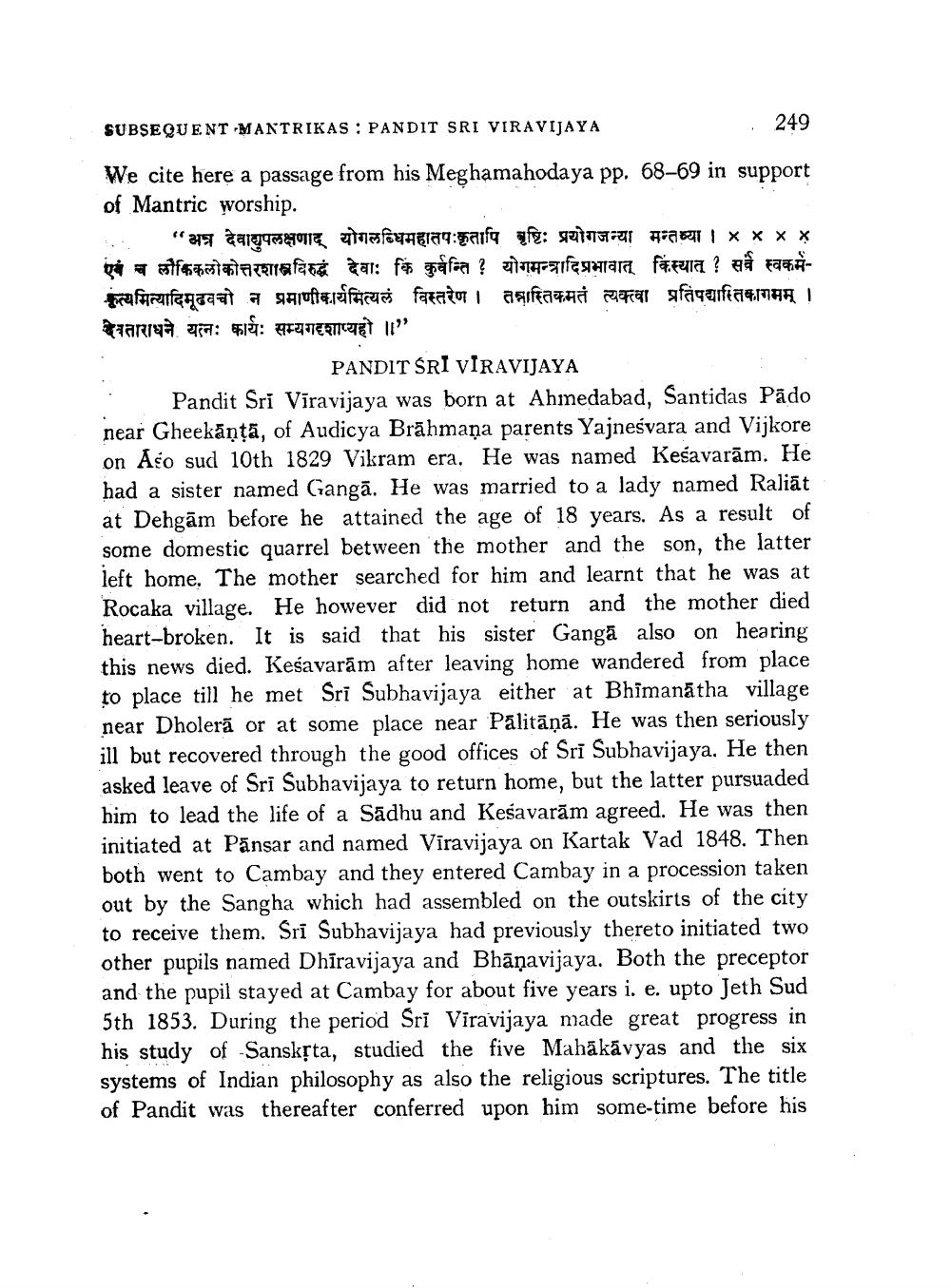________________
249
SUBSEQUENT MANTRIKAS PANDIT SRI VIRAVIJAYA
We cite here a passage from his Meghamahodaya pp. 68-69 in support of Mantric worship.
"अत्र देवाद्युपलक्षणाद् योगलब्धिमहातपः कृतापि वृष्टिः प्रयोगजन्या मन्तव्या । × × × × एवं व लौकिक लोकोत्तरशास्त्रविरुद्धं देवाः किं कुर्वन्ति ? योगमन्त्रादिप्रभावात् किंस्यात् ? सर्वे स्वकर्म-कृत्यमित्यादिमूढवचो न प्रमाणीकार्यमित्यलं विस्तरेण । तन्नास्तिकमतं त्यक्त्वा प्रतिपद्यास्तिकागमम् । देवताराधने यत्नः कार्यः सम्यगदृशाप्यहो || "
PANDIT SRI VIRAVIJAYA
Pandit Sri Viravijaya was born at Ahmedabad, Santidas Pado near Gheekāṇṭā, of Audicya Brahmaņa parents Yajnesvara and Vijkore on Aso sud 10th 1829 Vikram era. He was named Kesavarām. He had a sister named Ganga. He was married to a lady named Raliat at Dehgam before he attained the age of 18 years. As a result of some domestic quarrel between the mother and the son, the latter left home. The mother searched for him and learnt that he was at Rocaka village. He however did not return and the mother died heart-broken. It is said that his sister Ganga also on hearing this news died. Kesavaram after leaving home wandered from place to place till he met Sri Subhavijaya either at Bhimanatha village near Dholera or at some place near Palitāņā. He was then seriously ill but recovered through the good offices of Sri Subhavijaya. He then asked leave of Sri Subhavijaya to return home, but the latter pursuaded him to lead the life of a Sadhu and Kesavarām agreed. He was then initiated at Pansar and named Viravijaya on Kartak Vad 1848. Then both went to Cambay and they entered Cambay in a procession taken out by the Sangha which had assembled on the outskirts of the city to receive them. Sri Subhavijaya had previously thereto initiated two other pupils named Dhiravijaya and Bhāņavijaya. Both the preceptor and the pupil stayed at Cambay for about five years i. e. upto Jeth Sud 5th 1853. During the period Sri Viravijaya made great progress in his study of Sanskṛta, studied the five Mahākāvyas and the six systems of Indian philosophy as also the religious scriptures. The title of Pandit was thereafter conferred upon him some-time before his




